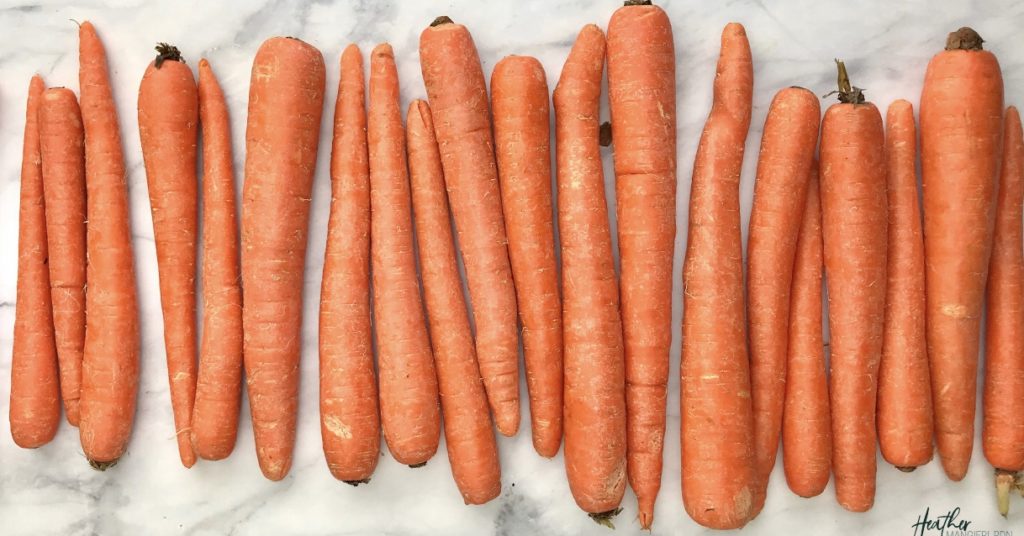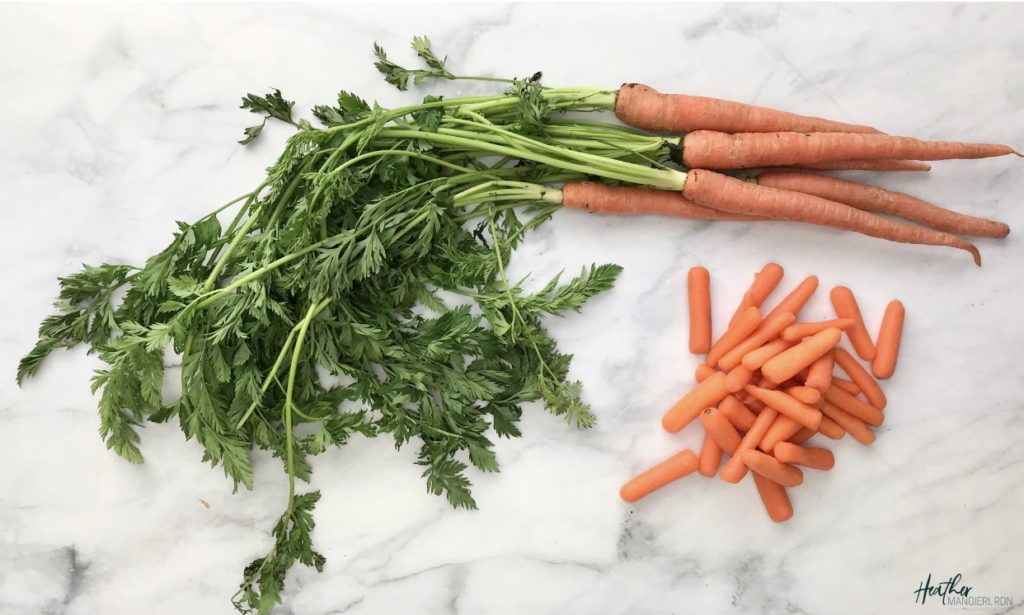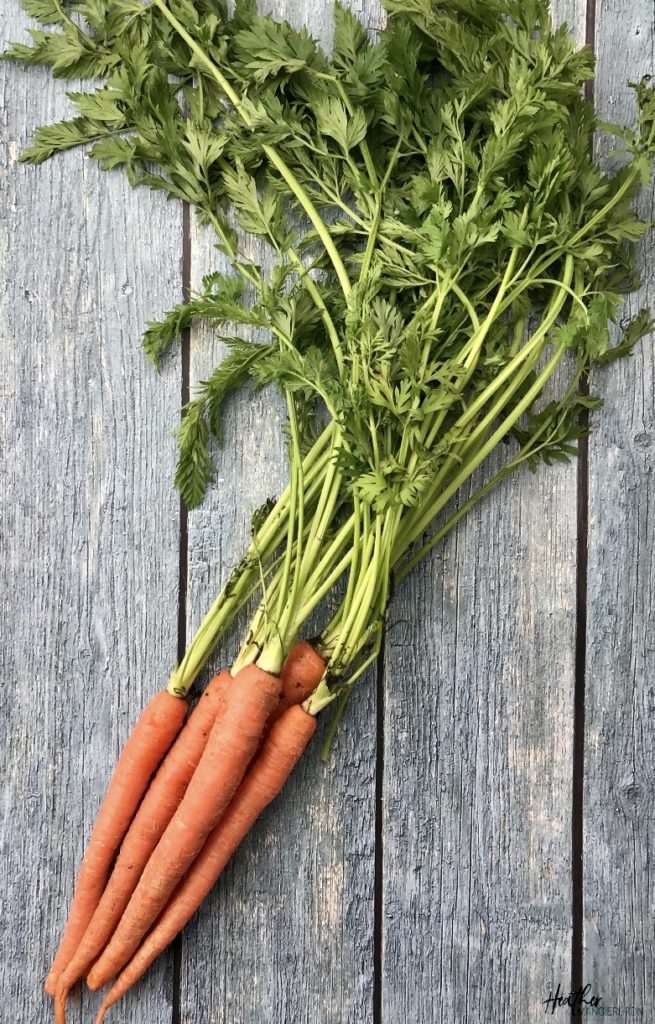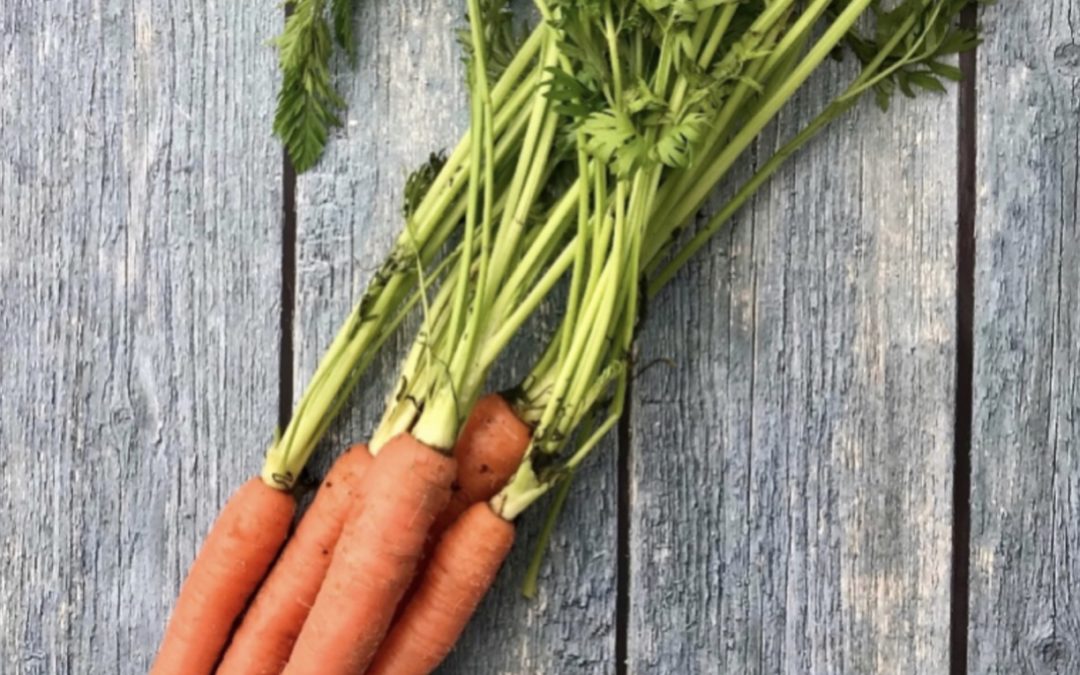Carrots are packed full of vitamins, minerals and antioxidants that support our health. Learn some of the nutritional and health benefits this vegetable has to offer, and some ways to cook and enjoy them as part of a healthy diet.

“Eat your carrots. They are good for your eyes.” Does this saying sound familiar? That’s something I heard from my mom growing up, and I know I’m not alone. While my mom was right, supporting eye health is not the only thing that carrots have going for them. There are many reasons to include this root vegetable in our diets. Carrots are a highly nutritious and delicious vegetable that have a lot to offer our health.
The History Of Carrots
The carrot originated in Afghanistan over 2000 years ago and people around the world have been eating them ever since. They are usually orange in color, though purple, white, red and yellow varieties also exist. Despite the fact that most people discard them, the green leaves are edible as well.

The Health and Nutrition Benefits Of Carrots
Carrots are known for the beta-carotene they contain, which gives them their deep orange color. Over the past 25 years, Agricultural Research Scientists have bred them in a way that provides us with more vitamins and beta-carotenes, making them more nutritious today than they were years ago. Our body can then covert beta-carotene to active vitamin A, which is beneficial in supporting eye disorders.
But, the nutrients in carrots are good for more than just our eye-sight. The vitamin A that we obtain from them helps to maintain our body linings and skin, build our immune defenses, and is necessary for normal development of cells. Vitamin A is also of critical importance for reproduction. The cholesterol lowering benefits of carrots comes from the soluble fiber they contain. According to a 2008 study, people who ate ¼ cup of carrots in their weekly diets, showed significant decreases in their risk for cardiovascular disease, as opposed to those who did not.
Carrots are one of only a few vegetables that contain the compound falcarinol, a natural pesticide which protects them from fungal diseases. Preliminary research in rats suggests that this compound could have a protective effect against certain types of cancers.

The Nutritional Benefits Of Carrots
According to the USDAs National Nutrient Database for Standard Reference, 1 medium carrot provides:
- 25 Calories
- 6 grams of Carbohydrate
- 1.8 grams of Fiber
- 21 mg of Calcium (~2% Recommended Daily Value)
- 205 mg of Potassium (4% Recommended Daily Value)
- 3.8 mg of Vitamin C (4% Recommended Daily Value)
- 10692 IU of Vitamin A (over 100% Recommended Daily Value)
- A source of a variety of B Vitamins, including Vitamin B6 and Biotin
How To Cook Carrots
Carrots can be eaten raw or can be cooked in a variety of ways. Here are a few ways cook them:
Roasted
This is my absolute favorite way! I always make extras so that I have left-overs, but they always get eaten. Here is a simple recipe for oven-roasted carrots.

Steamed In The Microwave
If you don’t feel like turning your oven on, simply put raw carrots in a microwave safe dish with a small amount of water and some olive oil and steam them. Make sure to use only a small amount of water, so that the vegetable retains all of the nutrients.
Grilled
Carrots can be cooked on the grill, too. Simply cut them into thin strips – julienne style – then lightly coat with olive oil. Sprinkle them with salt and pepper, then wrap them in foil and place on the grill. They will cook for ~10-15 minutes, or until they are tender but firm with a nice golden brown color. If you prefer, watch out video on how to make grilled carrots.

Ways To Incorporate Carrots Into Your Meal Plan
Carrots are relatively inexpensive and can be enjoyed in so many ways. Here are a few ideas:
– Eat them raw, as a snack. Dip them in hummus, or try them with my reduced-calorie ranch dressing.
– Add sliced carrots to your favorite homemade soup, like this homemade wedding soup.
– Shred them and put them into your salads, like rainbow vegetable slaw salad.
– Serve them cooked as a healthy vegetable side dish. Prepare them roasted or grilled as I shared above.
– Add them to your favorite one-pot meals, like this simple beef stew.
– Make a slaw to add loads of flavor to sandwiches and wraps. Check out this simple slaw recipe.

There are endless ways to incorporate this nutrient-rich vegetable into your eating plan. Do you have a favorite way to enjoy carrots?


 Hi, I’m Heather – a registered dietitian, busy mom, consultant, adventure junkie and travel addict who has mastered living healthy on the go. My blog is where I share simple recipes and healthy living tips to help and inspire others to live their best life.
Hi, I’m Heather – a registered dietitian, busy mom, consultant, adventure junkie and travel addict who has mastered living healthy on the go. My blog is where I share simple recipes and healthy living tips to help and inspire others to live their best life.